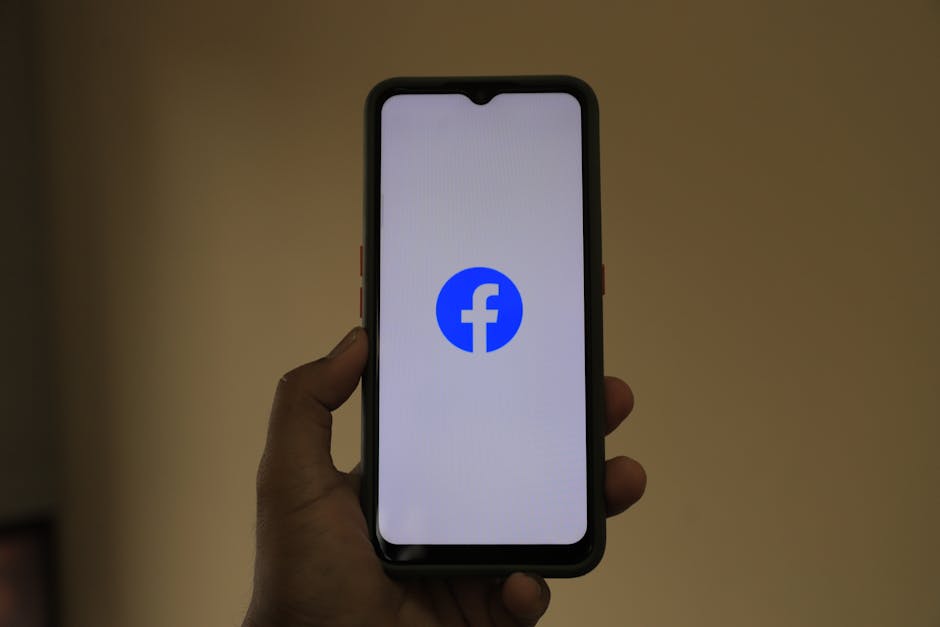Effective Social Media Strategies to Promote Your Music Online

With more artists turning to the internet to share their music, social media platforms have become crucial for building an audience. Whether you're an independent musician or a seasoned professional, leveraging these platforms can significantly impact your reach and engagement. Promoting your music online is more than just posting links, it's about creating a strategy that connects with listeners, builds a fanbase, and fosters interaction in a crowded digital space.
Developing an effective social media strategy can help you stand out and engage with both existing fans and new listeners. This involves choosing the right platforms, crafting engaging content, and regularly interacting with your audience. From Instagram's visual appeal to TikTok's short-form videos, each platform offers unique opportunities for musicians to promote their music. The key lies in understanding how to maximize each platform's potential.
1. Choosing the Right Platforms
Not all social media platforms are created equal when it comes to promoting music. Some platforms are better suited for musicians than others, depending on your target audience and style of music. For example, Instagram and TikTok have proven especially effective for younger audiences who enjoy visual content. TikTok, in particular, has been a catalyst for viral music trends and emerging artists.
Meanwhile, YouTube is essential for long-form video content like music videos, live performances, and behind-the-scenes footage. SoundCloud still remains an excellent platform for sharing tracks and connecting with other musicians. Consider where your audience spends most of their time and focus on building your presence there.
- Instagram: Great for behind-the-scenes content and engaging visually with fans through stories and posts.
- TikTok: Ideal for short-form videos, challenges, and viral trends that get your music noticed quickly.
- YouTube: Perfect for music videos and live performance uploads that allow fans to interact with longer pieces of content.
- Facebook: Better for older audiences or when promoting events like concerts or live streams.
2. Creating Engaging Content
Your social media strategy should go beyond simply sharing links to your latest tracks or albums. Audiences connect more when they see the person behind the music. Share snippets of your creative process, such as writing or recording sessions. Posting teasers or previews before releasing a full song also helps build anticipation.
Interactive content works well too, polls, Q&As, or even live streams can make fans feel like they're part of your journey. Stories on Instagram or Facebook provide a way to engage daily without overloading your main feed. The key is finding a balance between promotional content and more personal posts that humanize you as an artist.
3. Consistency Is Key
One of the most important aspects of any social media strategy is consistency. Posting regularly keeps you top of mind with your followers. It's not just about frequency; it's also about maintaining quality across all posts. Posting every day won't matter if the content doesn't resonate with your audience.
Create a content calendar to plan out posts in advance. This will ensure you're always sharing something new without scrambling at the last minute. Tools like Hootsuite or Buffer can help schedule posts ahead of time across multiple platforms.
4. Collaborate with Other Musicians
Collaborating with other artists can broaden your reach and introduce you to new fanbases. Whether it's through a joint song release, performing together on live streams, or simply tagging each other in social media posts, partnerships can create more opportunities for growth.
You can also take advantage of features like Instagram’s "Collab" post option where two accounts share ownership of the same post, helping expose both artists' work to wider audiences.
5. Engage Directly with Fans
Social media isn't just about broadcasting; it's also about listening and engaging in conversations. Responding to comments on your posts shows that you value your fans’ input and care about building relationships with them. Hosting giveaways or contests where fans have a chance to win merchandise or tickets is another fun way to interact while promoting yourself at the same time. If possible, consider hosting live Q&A sessions where fans can ask questions about upcoming projects or even request songs during live performances streamed through platforms like Instagram Live or Facebook Live.
How to Get Started for Beginners: Building Your Social Media Presence
If you're new to the world of promoting music on social media, getting started can feel daunting. While seasoned professionals may have teams and tools at their disposal, beginners often work with limited resources and experience. Even without a large following or budget, you can build an effective and engaging social media presence from the ground up.
To help beginners start on the right foot, here's a step-by-step guide for building your social media presence in a way that aligns with your unique musical identity.
1. Define Your Brand as an Artist
The first step is to clarify who you are as an artist. What type of music do you create? What themes or emotions do you want to convey? Your online presence should reflect your personal brand, which includes your sound, aesthetic, and message.
Consider how you visually present yourself. Is your style more laid-back or polished? Do you embrace colorful imagery or prefer a minimalist look? Defining these aspects helps maintain consistency across platforms, making your online persona instantly recognizable to potential fans.
Remember, this is about authenticity. Fans are drawn to musicians who seem genuine. Instead of mimicking what others are doing, focus on representing yourself honestly. If you're uncertain about your brand direction, start by analyzing artists whose approach resonates with you and incorporate elements that feel authentic to your artistic identity.
2. Start with One Platform Before Expanding
It's tempting to dive into every social media platform at once (Instagram, TikTok, Facebook, YouTube) but juggling multiple channels without prior experience can lead to burnout and ineffective promotion. Instead, choose one platform where you think your potential audience is most active and focus on mastering it first.
If you're not sure which platform best suits you, start with Instagram or TikTok since both emphasize visual content, an ideal medium for musicians looking to connect through aesthetics and short snippets of music. These platforms offer significant reach even for newcomers due to their discovery algorithms and viral trends.
Once you've gained momentum on one platform and feel comfortable managing it regularly, consider branching out to other platforms like YouTube or Facebook. This gradual approach ensures you're not overwhelmed by the demands of managing multiple accounts while still building a strong foundation.
3. Develop a Content Plan
A common mistake among beginners is posting sporadically without a clear plan. This can confuse your audience and make it difficult for people to stay engaged. To avoid this pitfall, create a basic content calendar outlining what you'll post and when.
Your content plan doesn’t need to be elaborate, start with three types of posts: promotional (new music releases), interactive (polls, Q&As), and personal (behind-the-scenes glimpses). Rotate between these types of posts regularly so that your feed offers variety while maintaining consistency.
For example:
- Monday: Post a teaser clip from an upcoming track.
- Wednesday: Share a behind-the-scenes photo from the studio.
- Friday: Engage followers with a question like "What's your favorite lyric from my latest song?"
This kind of structure keeps followers intrigued and prevents content fatigue while establishing clear communication rhythms that audiences will come to expect.
4. Use Free Tools to Enhance Your Posts
You don’t need expensive software or professional equipment when starting out. There are numerous free tools available that can help you create polished content for your social media profiles:
- Canva: A free design tool perfect for creating album covers, social media graphics, and story templates.
- InShot: A mobile app that allows easy editing of videos for Instagram Reels or TikTok content.
- Pixlr: A free online photo editor that enables easy touch-ups for images before posting them online.
- Hootsuite: A social media management platform with free options for scheduling posts in advance across multiple platforms.
Using these tools enhances the quality of your posts without requiring advanced technical skills or paid subscriptions.
5. Stay Engaged Even When You're Not Posting
A successful social media presence goes beyond posting regular content, it’s about actively participating in conversations within your community. Even if you're not ready to post new material daily, stay active by liking comments, responding to messages, and engaging with fans on other artists’ pages who share similar audiences.
This strategy not only helps build relationships but also increases your visibility within the online music community. As people see you actively supporting others and participating in discussions, they’re more likely to check out your own content as well.
6. Track Your Growth
Finally, it’s important to track progress so that you can measure what's working and what needs improvement. Many platforms offer built-in analytics tools such as Instagram Insights or YouTube Studio that show metrics like follower growth, engagement rates, and video views.
Pay attention to which types of content receive the most interaction, this data will guide future decisions about the direction of your social media strategy. Experiment with different formats over time based on feedback from analytics reports.
Focus on Consistency Over Perfection
The key for any beginner is not to aim for perfection but rather consistency in how frequently (and authentically) you interact with your audience. Over time, as you refine your strategy through feedback and practice, you'll begin gaining followers who connect with both your music and artistic persona. The most important thing is simply starting somewhere (whether that’s posting acoustic covers on Instagram Stories or joining a trending challenge on TikTok) and gradually learning what resonates best with fans along the way.
Promoting your music online requires strategic planning across various social media channels while maintaining authenticity in how you present yourself as an artist. Selecting the right platforms based on where your audience is most active ensures you don’t waste effort on sites that won’t benefit you much. Keep your content fresh by blending promotional material with engaging personal updates that give fans insight into who you are behind the scenes. Regular interaction through comments or live streams helps foster genuine connections that turn casual listeners into loyal supporters over time.
